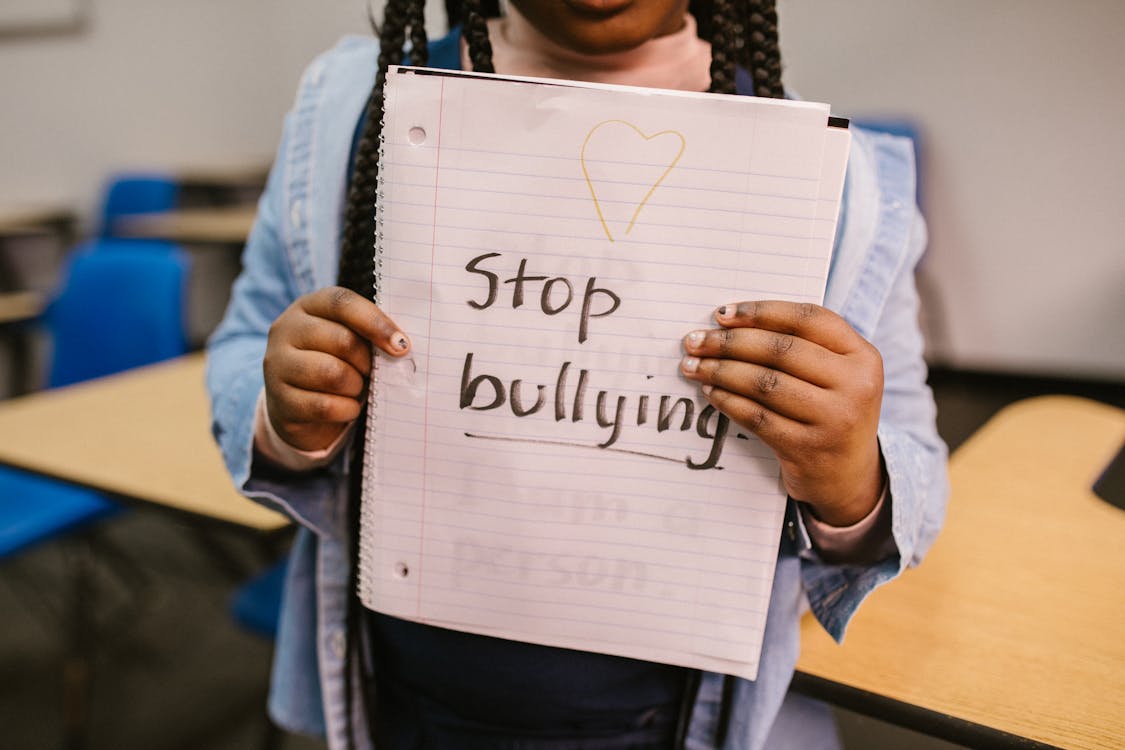
What To Do If Your Child Is Being Bullied: A Guide For Parents
It’s a mum and dad’s worst nightmare to hear that their child is being bullied, be it via cyberbullying online or face-to-face in the playground, but the heart-wrenching truth is that many parents will have to deal with this at some point.
To mark the start of Anti-Bulling Week, we have shared some advice and recommendations on what to do if your child is being bullied.

What is Anti-Bulling Week?
Running from 14th-18th November, Anti-Bullying Week 2022 aims to raise awareness of bullying and offer support to young people facing these problems. As part of this year’s Reach Out theme, the week will kick off with Odd Socks Day, where kids and grown-ups will be encouraged to celebrate each other’s individuality and uniqueness by wearing odd socks.
For details on how you can get involved, head over to the Anti-Bullying Alliance hub.
A Parent's Guide For How To Deal With Bullies
We take a look at what to do and what not to do when supporting a child who is being bullied.
Put Your Feelings Aside
Approaching these conversations with a level head is key. Naturally, you are likely to feel angry and upset, but reacting irrationally might cause your littlen more stress and anxiety. Instead, take a step back and listen calmly (however hard that may be).
Validate Their Truth
Plucking up the courage to tell you that they’re being bullied may be a really difficult thing for your child to do, so don’t dismiss what they’re saying. Tell them you believe them and that you’re grateful they told you, so you can help.

Involve Them In Decision Making
Rushing off to speak to the bully’s parents or the school’s headteacher may do more harm than good, especially in your child’s eyes who might worry that this will actually worsen the bullying.
As adults, we often think we know best, but asking your child what they would like you to do may help them feel heard. They might not know what they want from you, but this way you have the chance to consider their thoughts and feelings before deciding the actions to take.
Reassure Them
The person or people bullying your child will probably be dealing with issues themselves, so let your child know that. Most likely it’ll be nothing to do with them, so telling your little girl or boy that it’s not their fault can help the healing process.

Help Build Their Confidence
Gently encouraging kids to make strong friendships, express their emotions, take on new challenges and believe in themselves are the fundamentals of a confident youngster. If your child struggles with low self-esteem, sometimes the best approach is to fake it till they make it.
Bullies want a reaction, so feigning confidence through nonchalant body language while ignoring their unkind words or taunts will show the bully that they’re not bothered. This soon gets boring, which should give the bully less motivation to pick on them, while also growing your child’s resilience to tough situations.
Take Their Mind Off It
Play is powerful. It can reduce anxiety, spark curiosity and creative thinking, develop skills such as problem-solving, and introduces children to imaginative worlds where they can escape the challenges of growing up. Some of our favourite stress busters include NeeDoh’s colourful Fidget Toys and our Arts & Crafts collection, full of creative mindfulness activities for kids.

Work Together With Their School
As bullying in school is such as big problem, all schools are obliged to have an anti bullying policy in place - it’s illegal not to. Kids spend hours in school every day, they do a lot of their growing there - physically, mentally and emotionally - so it’s important that they feel safe and secure in this educational environment.
If you want to find out what the school’s anti bullying policy is, make an appointment to meet with your child’s teacher and work together to resolve things rather than placing blame.
However, if you feel the school isn’t doing enough to help, there are lots of online resources and helplines out there that can offer you additional support.
